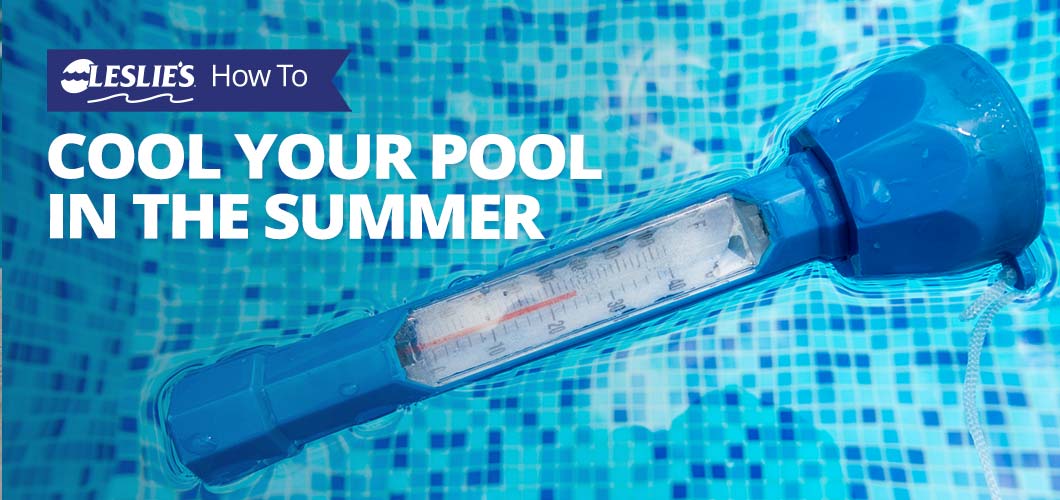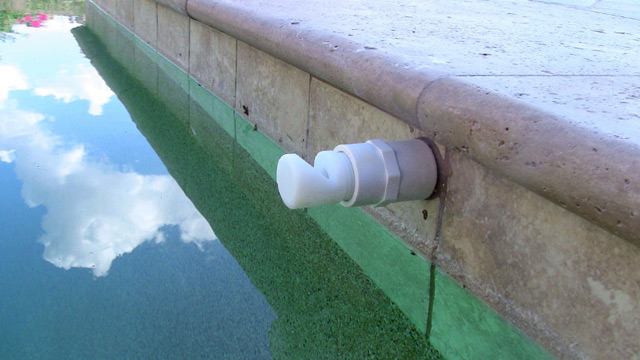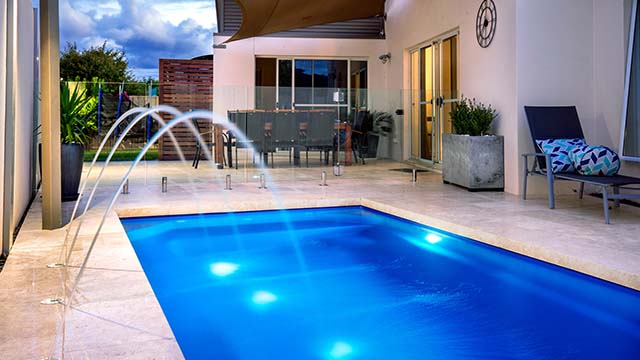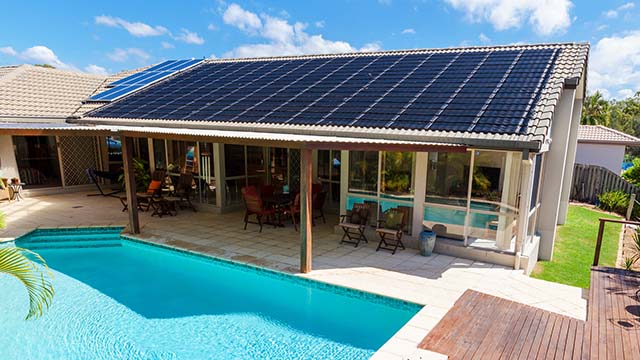
How to Cool Your Pool in the Summer
In many places during the summer, pool water temperatures can reach the low to mid 90s. Unfortunately, most people do not find this enjoyable for swimming. A common question we get in the summer is how to cool pool water during hot weather. Luckily, there are several convenient ways to lower pool temperatures.
Aerators

The cheapest and easiest way to cool your pool water off is to use an aerator. An aerator is an attachment that plugs or screws into the side of your pool. Using return water from the pump, it sprays a fountain of water back into the pool. Air is introduced to the small droplets of water as they're sprayed. This, in turn, allows heat to escape the water more quickly through evaporation. It's a simple concept that can easily bring the pool temperature down a few degrees. For example, if your water temperature was about 94 degrees, you may expect the pool temp to be around 90 degrees with your aerator on.
To turn on the aerator, your pool plumbing or equipment should have a valve that needs to be opened. There is no specific valve for turning on an aerator. However, most pools have their valves labeled to help you figure out what each one controls. If you cannot figure out which valve controls your aerator water flow, take a picture of your equipment and show a local Leslie’s professional. Once this valve is opened, when your system is running, water will flow through the aerator and be sprayed back into the pool.
Aerators tend to work better in dry climates. However, they are still effective in more humid climates.
BONUS TIP: Aerators and water features work great for reducing pool water temperature during the hot summer months. However, they will increase evaporation, drive pH levels higher, and can have an impact on chlorine levels. To minimize chlorine loss and maximize the cooling impact, use your aerator or other water features at night instead of during the day. Keep some Dry Acid or muriatic acid on hand to lower rising pH levels.
Fountains and Waterfalls

Just like an aerator, water features like pool fountains and waterfalls cool the water by increasing air exposure, thus amplifying the rate of evaporative cooling. In addition to the obvious benefit of helping cool the pool, decorative water features can also bring the aesthetic value of your pool area up a few notches. Some water features are even equipped with colorful lights. Depending on the complexity of the water feature you choose, you may need to hire someone to install it for you.
Run the Pump at Night
To amplify the cooling effects of aerators, fountains, and other water features, run the pump the most at night. The cooler air temperatures will help bring the temperature down even faster than running them during daylight hours. But even if you don't have any water features, running the pool pump overnight will circulate the water and help release some heat into the cool night air.
BONUS TIP: While solar pool covers do a great job of reducing evaporation and helping you save on water and chemicals, they can actually be counterproductive if you're trying to cool your pool. Solar covers cut down on heat loss due to evaporation. What's more, they also trap heat from the sun and transfer it into the pool water below. Because of this, solar blankets can increase water temperatures by up to 10-15 degrees Fahrenheit. They're perfect for use in the cooler spring and fall months, or even during early and late summer. But they may not be so helpful during peak summer temperatures. Clean and dry your solar cover, put it in storage for a few weeks, then place it back on the pool when temperatures start to drop.
Solar Panels

While most people purchase solar panels for the sole purpose of heating a pool, they can also help cool it. Instead of letting water pass through the panels during the day, use the panels while running the pump at night (see tip above) to take advantage of the cool night air.
As the water passes through the tubes, it increases the surface area and allows the heat to dissipate. Solar panels can also be used to supplement the cooling effects of any other method listed here.
Pool Coolers
Another option to cool your water is to use a heat/cool heat pump or dedicated pool cooler. Almost like an air conditioner for your pool, water flows through the unit and transfers heat out of the water by way of a fan and tubes of refrigerant. Certain types of pool coolers don't contain refrigerant, only utilizing evaporative cooling. With both types of systems, the chilled water is then pumped back into the pool. Most people can expect to see a 10-15 degree difference when running this type of system. There are often temperature controls to help you find the perfect comfort setting. This is one of the more expensive cooling options to purchase, but it's efficient and effective.
Shade
Shading the pool often involves a natural sun break, such as tall trees. But this also comes with the drawback of extra cleaning responsibilities when tree debris — like leaves and pollen — fall into the water. Another option is to install a canopy or other physical shade structure over a portion of the pool. You can also set up patio umbrellas on the sunny side of the pool to help shade the water. There are many different ways to add shade to the pool area!
As you can see, there are quite a few ways to easily cool your pool. Although ice is always an option, it's not worth the cost or short-term benefit of adding hundreds, if not thousands, of pounds of ice to the water. A bit of careful pool management by running the pump at night, in combination with some water features and/or a pool cooler, can make a huge difference in the temperature of your pool water this summer. Still having trouble cooling the pool? Take a look at our other blog post, How To Keep Your Cool in Extreme Heat. For more information about maintaining your pool during the hottest time of the year, call or stop by your local Leslie's.